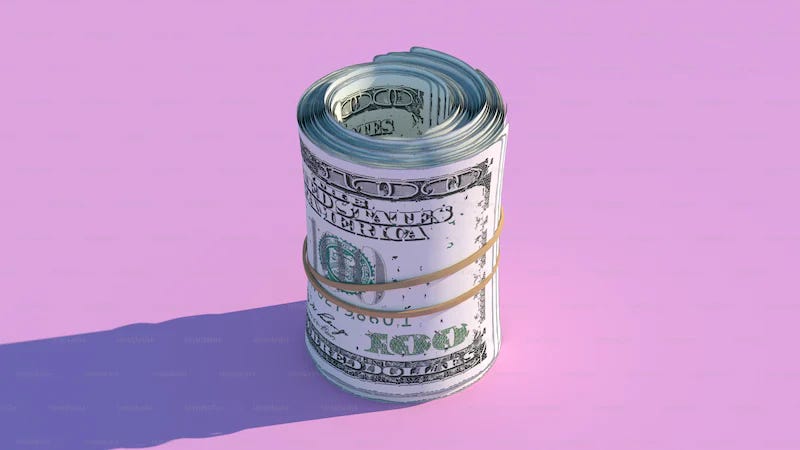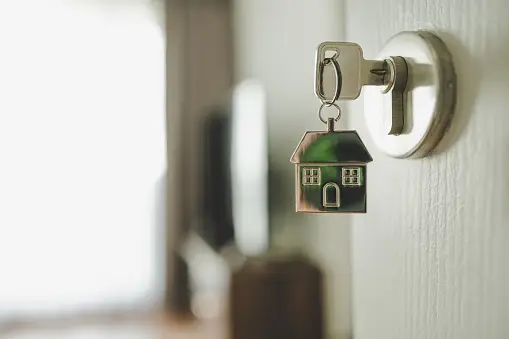What’s often associated with achieving the American Dream and ‘making it’ in the United States is acquiring something and usually that something tends to be the largest purchase most Americans will make in their lives, their so-called dream home.
With more space than you could ever imagine and a parking garage the size of your first rental, delusional thinking can take shape when you have more options you can handle. Hey, at least this isn’t the worst problem in the world. It’s all how you make of it and many of us still need to learn that!
Imagine, after acquiring your dream home with 2 balconies, a pool, and backyard fit for a king— features you’ve always dreamed of, realities start settling in on the boatload of maintenance, utilities, and hassle that goes into owning more. Reminder, the more you own, the more it can own you.
At this point, you start questioning yourself on why you relied on possessions instead of your own gratitude and self-worth for fulfillment and end up being more miserable prior to the purchase. Sadly, this is where many Americans find themselves in after a windfall or any splurge.
From certain features to luxurious amenities, our wants oftentimes outpace our needs as we accumulate a greater net worth even though most of the time, we don’t need to elevate our lifestyles in such a dramatic way anyways since it makes us feel empty eventually. We can never escape our minds so we must work on building a strong one to then find true bliss and seek financial freedom!
The grass always appears greener on the other side, especially as the world expands, luxuries loom larger, money circulates, and properties multiply so think bigger. It’s 2023, buying property may not be the best fit for you and that’s okay!
In the case of real estate, I would consider it a prized and unique asset class. In fact it’s one of my favorites for building generational wealth however it can also be seen as a liability and money down the drain for those who fail to consider their lifestyle needs, costs, and priorities prior to the purchase.
When receiving a substantial windfall, whether it’s through selling investments, receiving a big bonus, or getting lucky, if you purchase a property solely because you can, think again. Although renting may not be glamorous or in your full control it may pay off mentally and financially if you are smart enough to know what’s best for you. Real estate doesn’t always have to be the dream. Don’t try to chase the deal in anything just because it’s on sale because that can hurt our wallets and sanity down the road.

The American Dream
When evaluating real estate’s worth compared to other asset classes, especially equities, it’s important to note that it doesn’t appreciate or depreciate nearly as fast over a short period of time since it’s more stable (less volatile).
However, in terms of its utility (usefulness), especially the longer you hold it and pay it off, historically it represents a solid appreciable investment over time but you must be patient not greedy for that to happen.
Typically, when starting out, especially in high-priced metro areas like New York, San Francisco, and Seattle, recent graduates and those in their early twenties will dorm with roommates and rent until they build enough of a nest egg to roam free. After a few years of working, maxing out their retirement accounts, saving until it hurts, and eliminating toxic (consumer) debt, they’ll work towards buying a home in their own name because that has always seemed to be the thing to do.
If your expenses are substantially lower than your earnings over the years, then purchasing real estate can work in your favor. However, even in this post-pandemic remote world where NYC for example is currently experiencing sky high housing prices despite a decline in population, and the Fed considering a possible last rate hike in late 2023 into 2024, chipping into real estate may not be the best move. Luckily, it’s not the only investment to chose from with extra cash and shouldn’t always be considered one just because real estate is an alternative to the market.
If stuck on where to deploy your cash, here are a few common options that tend to be the most common runner-ups to a home. As a bonus, most are investments in your future you!
- Paying down debt
- Health
- Education
- Travel
- Events
- Food
- Car
Unlike stocks, which provide no value until sold, real estate’s stability and discount deals in remote-friendly areas can delude Americans into thinking it’s worthwhile since they need a place and can let it grow, even if they’ve only put down only 5% and monthly expenses are 2x their previous rent.
Ideally, owning a mix of physical and intangible assets is ideal, however just because it’s physical not electronic/intangible, and doesn’t follow broader market trends, doesn’t automatically make it the investment of choice. Real estate requires careful consideration, no matter how financially secure you think you are.

Renting vs. Buying. No Easy Answer.
A common rule of thumb when deciding whether to buy or continue renting is to first assess your discretionary income (how much you can spend on non-essentials) and guestimate where you THINK you’ll be in 5 years time. Owning a home comes with various unpredictable expenses so considering your 5–10 year plan is crucial.
Are you planning to stay in the same location, move, switch careers, or expect significant life decisions that could strain your budget?
Additionally, you must be mentally prepared for the responsibilities that come with homeownership, which often only become apparent once you’re an owner, much like having children. The windfall could pay for the sticker price but can it pay for all the hidden fees?
If you cannot purchase it twice, it’ll be tight once.
The choice between renting and buying isn’t black and white; it’s highly personalized, much like any financial decision. In many cases, renting makes more sense if you’re not interested in managing or owning another physical asset to grow your wealth and simply need a place to live. This choice is often made by individuals with substantial financial resources or, conversely, those with limited means.
If you find yourself in the middle, similar to my current stage in my career after graduating in May, and believe real estate is a prudent investment for your long-term net-worth goals and not just a checkbox on your growing up list, then meticulously understanding your budget and projecting your five-year plan, although tricky, will position you best mentally and financially. We can’t predict what the future holds, but if you’re really unsure what to spend your windfall on, although enticing, try finding something else besides just real estate as the default.
Real estate can be seen as a luxury, a source of peace of mind, an investment or a pain.
Live Not Necessarily Look Better
Whether you’re deciding on becoming a homeowner or not, think about how you can really make your life easier not necessarily just to look better. There’s a big difference! At my age, its easy to fall victim into comparing yourself online and imaging a lifestyle that you want but isn’t for you just yet.
What fun is that?
Imagine you were surprised with a windfall such as a lump sum from an inheritance or just sold off some stock during a bear market. Would you gravitate towards buying a first home because all your twenty-something-year-old friends are getting one or not rush the decision and explore instead? Finances is all about taming emotions and training your brain to be grateful, not greedy. Managing our personal finances is a very emotional and personal process after all so consider your options before diving in. Thanks to this hybrid world, we can now call many things home and design our own untraditional paths to life.

